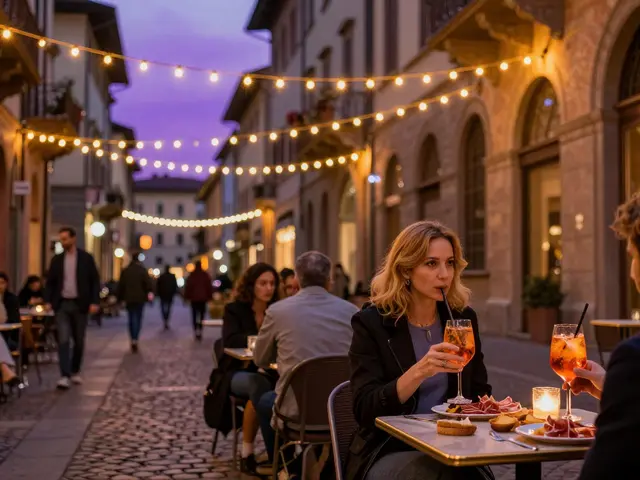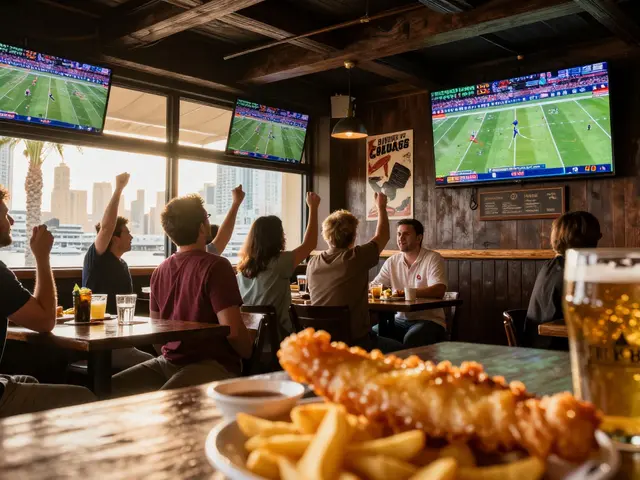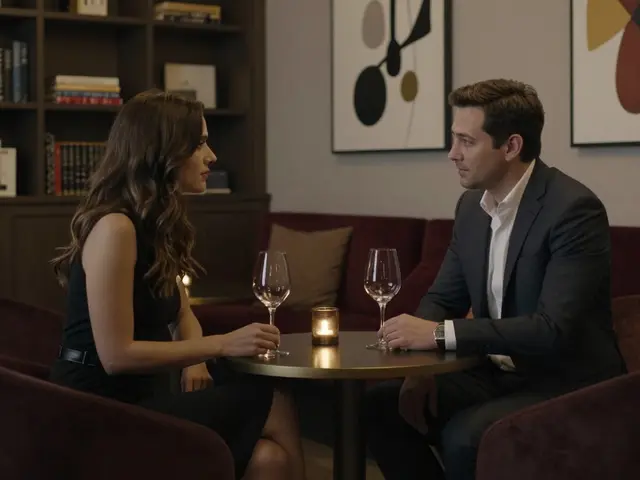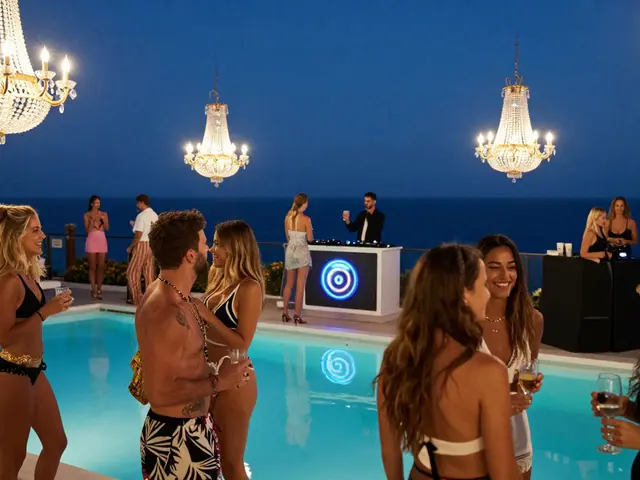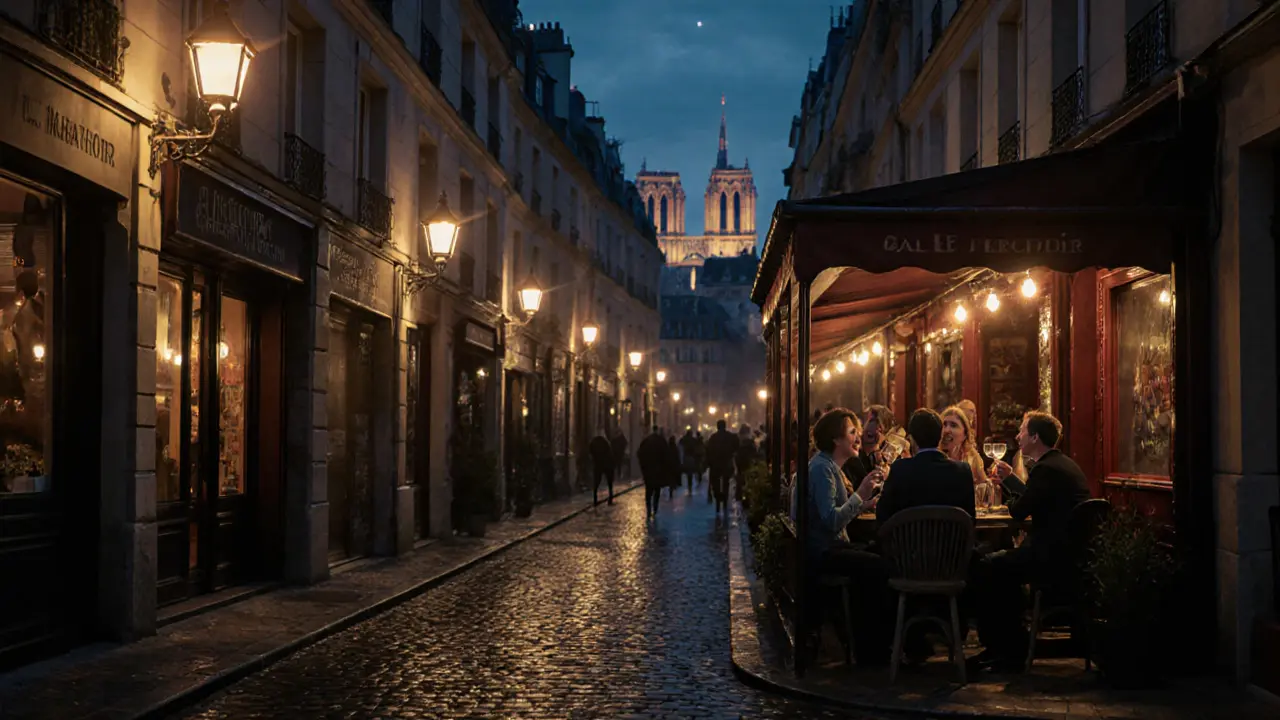
Paris doesn’t sleep when the sun goes down. While most tourists head back to their hotels by 10 p.m., the real city wakes up. The streets of Le Marais fill with laughter, jazz spills out of basement clubs in Saint-Germain, and midnight snacks at a boulangerie taste better than any five-star dinner. This isn’t the Paris of postcards-it’s the Paris that lives after midnight, and it’s waiting for you.
Where the Locals Go After Midnight
If you want to skip the tourist traps and find real Parisian nightlife, start with Le Marais. It’s not just about the historic streets or the LGBTQ+ scene-it’s the hidden bars where you’ll find engineers, artists, and chefs unwinding after work. Bar Le Perchoir on Rue de la Verrerie has a rooftop with views of Notre-Dame, but the real magic is the vibe: no cover charge, no velvet ropes, just good wine and people who’ve been coming here for years. The bartender knows your name by the third visit.
Head to Le Comptoir Général in the 10th arrondissement if you want something different. It’s part bar, part museum, part jungle. Vintage suitcases line the walls, live Afrobeat plays on loop, and the cocktails are made with homemade syrups. You won’t find a menu-just ask what’s fresh. One night, I got a drink made with hibiscus, ginger, and a splash of absinthe. It tasted like a memory.
Where to Eat When Everything Else Is Closed
Paris has a secret: the best food after 2 a.m. isn’t at a fancy restaurant. It’s at a tiny boulangerie in Montmartre that opens at 1 a.m. Boulangerie Utopie serves warm croissants, pain au chocolat, and ham-and-cheese baguettes straight from the oven. No one queues. No one takes photos. You just walk in, say "bonjour," and get the best snack of your life for €3.50.
For something heartier, try Le Petit Vendôme in the 2nd. It’s a classic Parisian bistro that never closes. Order the steak frites, a glass of Beaujolais, and sit at the counter. The chef will ask where you’re from. If you say "New York," he’ll nod. If you say "Tokyo," he’ll bring you an extra slice of bread. It’s not hospitality-it’s habit.
The Best Clubs That Don’t Look Like Clubs
Paris doesn’t do neon-lit dance floors with DJs spinning EDM. Its best clubs are tucked away-behind bookstores, inside old warehouses, under train tracks. La Java in the 18th is one of the oldest dance halls in the city. It opened in 1912. Now, it hosts indie rock bands, vinyl-only DJs, and swing dancers in their 70s. The floor creaks. The walls sweat. You’ll dance until 5 a.m. and not realize it until your feet hurt.
Le Baron is the only place that feels like a club from a movie. But it’s not for everyone. You need to be on the list, and the bouncer checks your vibe, not your ID. If you’re wearing sneakers, you’re probably not getting in. But if you’ve got a story, a leather jacket, and a little swagger? You’ll be inside in seconds. Inside, it’s dim, loud, and full of models, musicians, and people who don’t care if you know who they are.
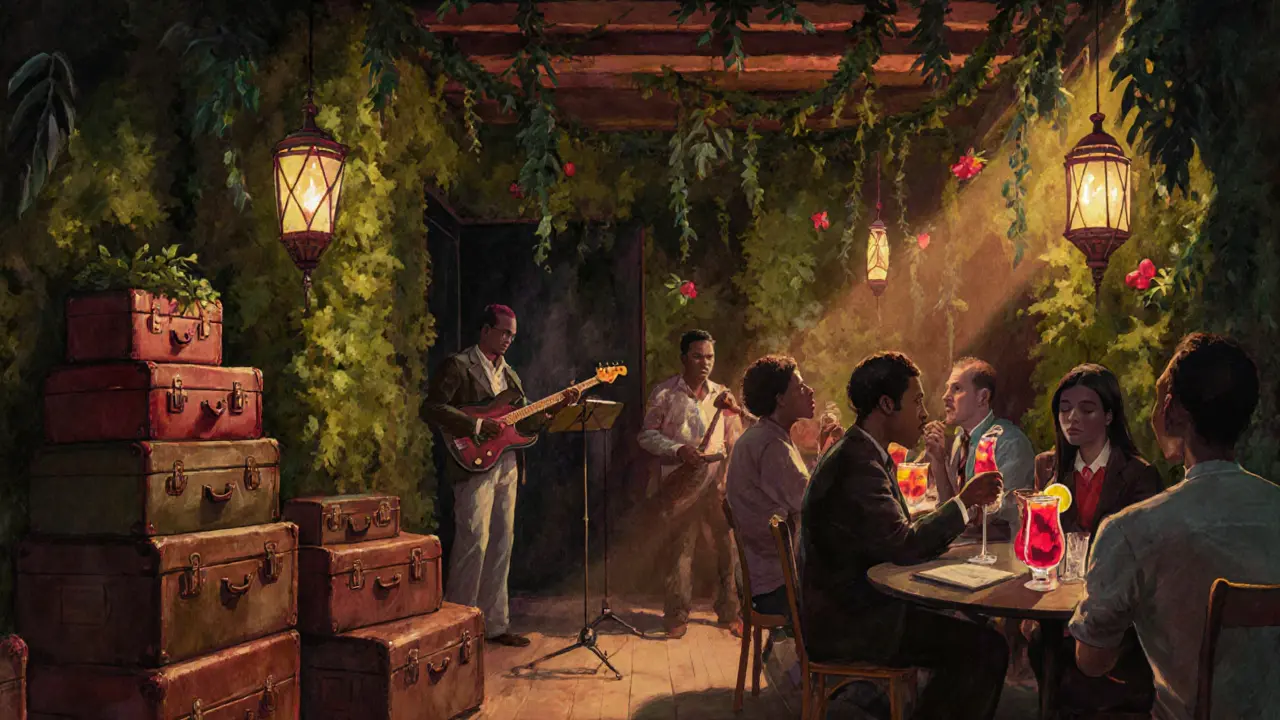
Live Music That Doesn’t Cost a Fortune
You don’t need to pay €80 to see a jazz legend in Paris. Head to Le Caveau de la Huchette in the 5th. It’s been playing hot jazz since 1947. The band doesn’t announce their set times-you just show up. One night, a 78-year-old saxophonist played a solo so long, the room went silent. When he finished, no one clapped. They just smiled. That’s Paris.
La Cigale in the 18th is where local bands test new songs before they blow up. Tickets cost €15. You’ll stand shoulder to shoulder with students, expats, and a guy in a trench coat who’s been coming here since 1992. The sound isn’t perfect. The lights flicker. But the energy? It’s electric.
Where to Find Quiet After the Noise
Not every night needs to be loud. If you want to sit with a book and a single glass of wine, go to Le Procope in the 6th. It’s the oldest café in Paris, opened in 1686. The waiters still wear waistcoats. The tables are worn smooth from centuries of conversation. At 1 a.m., it’s empty except for one couple reading poetry and a man writing a letter to his daughter.
Or walk to the Seine. The bridges are lit, the water is still, and the only sound is your footsteps. If you’re lucky, you’ll hear a street musician playing accordion. Don’t toss coins. Just stop. Listen. That’s when you realize Paris isn’t a city you visit-it’s a feeling you carry home.
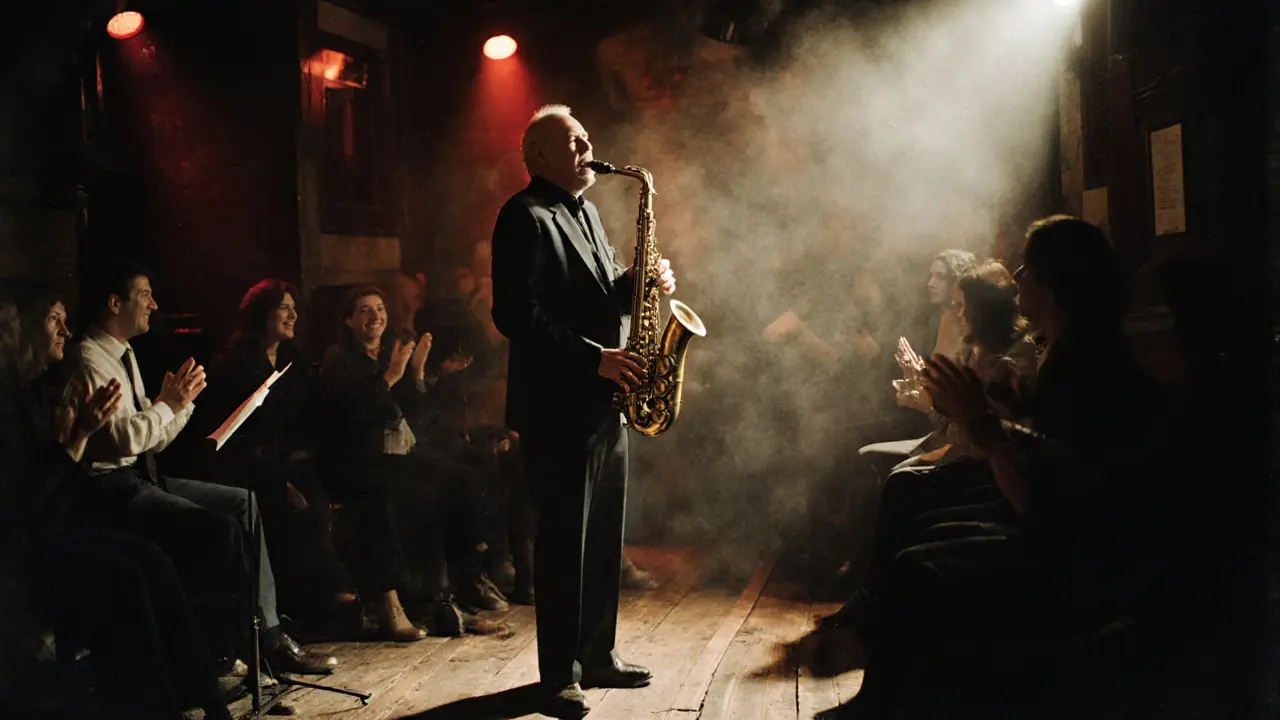
What Not to Do
Don’t follow the Instagram influencers to the Eiffel Tower at midnight. The line to take a photo is longer than the wait at a nightclub. The lights turn off at 1 a.m. anyway. You’ll be cold, tired, and disappointed.
Don’t drink tap water in bars unless you ask. Most places charge for it. But if you say "Je voudrais un verre d’eau du robinet," they’ll bring it with a smile. It’s free, and it’s clean.
Don’t assume everyone speaks English. Learn three words: "Bonjour," "Merci," and "Où est la sortie?" You’ll get further with politeness than with a map.
When to Go
Paris nightlife peaks on Thursday, Friday, and Saturday. But the real gems open on Wednesday. That’s when the locals test new bars, and the crowds are thin. You’ll get better service, better drinks, and better stories.
Summer nights are long. Bars stay open until 6 a.m. Winter nights are cold. But the heat inside the clubs is worth it. Bring a coat. You’ll need it when you step out at 3 a.m.
Final Tip: Slow Down
The best nights in Paris don’t start with a plan. They start with a walk. Turn left when you’re supposed to go right. Follow the music. Talk to the person next to you at the bar. Say yes to the invitation you didn’t expect. Paris doesn’t reward the tourists who check boxes. It rewards the ones who get lost.
Is Paris nightlife safe at night?
Yes, most areas popular with nightlife-Le Marais, Saint-Germain, Montmartre, and the 10th arrondissement-are well-lit and patrolled. Stick to main streets after midnight, avoid isolated alleys, and don’t flash expensive gear. Pickpockets exist, but they target distracted tourists, not locals. If you’re walking home, take a taxi or the night bus (Noctilien). It runs every 30 minutes and connects all major districts.
What’s the best time to visit Paris for nightlife?
Late May through September is ideal. The weather is warm, outdoor terraces are open, and festivals like Nuit Blanche (early October) turn the whole city into a party. But if you want fewer crowds and better prices, go in April or October. The nights are cooler, but the energy is just as alive. Winter is quiet, but the intimate jazz clubs and cozy wine bars feel even more special.
Do I need to make reservations for bars and clubs?
For most places, no. Walk-ins are welcome, especially midweek. But for Le Baron, Le Comptoir Général, and any venue with live music on weekends, it helps to call ahead or check their Instagram. Some places have waiting lists. Others don’t even have websites-you find them by asking locals. The best tip? Ask the bartender at your first bar where they go after their shift.
How much should I budget for a night out in Paris?
You can have a great night for €30-50. A drink at a local bar costs €8-12. A meal at 2 a.m. is €10-15. A club entry is usually free or €5-10. Taxis after midnight cost €15-20 within central districts. Skip the €25 cocktails at tourist spots. Stick to wine by the glass, local beer, or a simple pastis. The more you explore off the beaten path, the less you spend-and the more you enjoy.
Are there any age restrictions for nightlife in Paris?
The legal drinking age is 18. Most bars and clubs enforce this strictly, especially in tourist areas. Some venues, like Le Baron, have a 21+ policy, but they rarely check IDs unless you look young. If you’re under 21, stick to wine bars, jazz clubs, and late-night cafés. They don’t care about your age-they care if you’re respectful.
Paris at night isn’t about the places you go. It’s about the moments you didn’t plan for. The stranger who bought you a drink because you smiled. The saxophone solo that made you cry. The quiet walk home with your coat pulled tight, knowing you just experienced something real.

